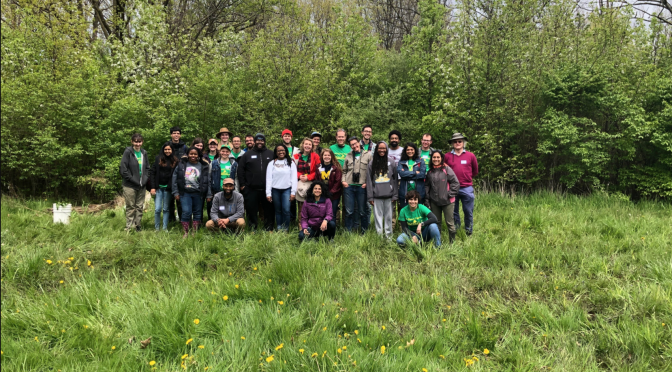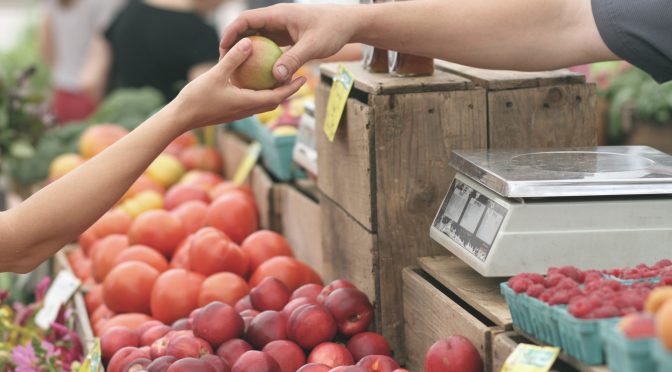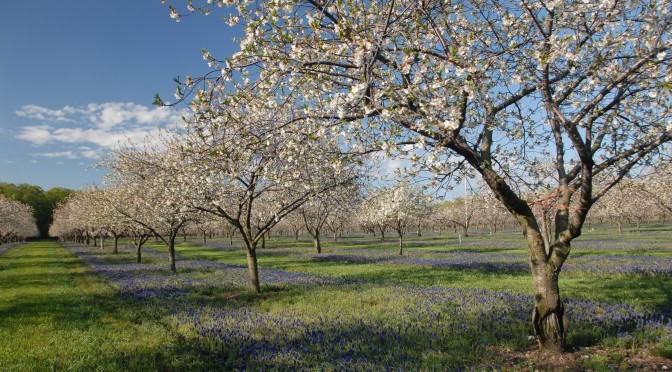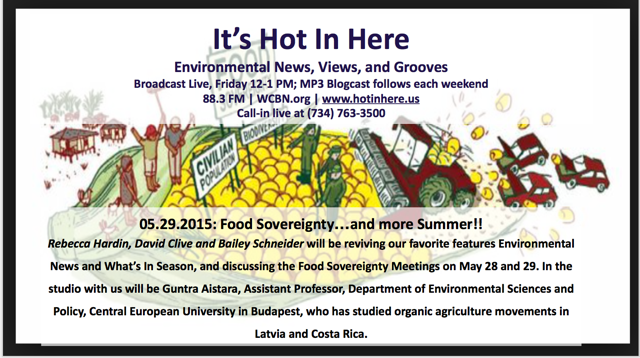
As a changing climate and urbanizing population continually alter the landscape of the US, many of us are asking the question: what is the future of food production? Increasingly, answers to that question include some aspect of urban agriculture, especially in Detroit, a globalized recognized hub of urban agriculture. To learn a bit more about this side of food production, It’s Hot In Here hosts sat down (virtually) to speak with Naim Edwards, the director of Michigan State University (MSU) Detroit Partnership in Food, Learning and Innovation.
After graduating from Morehouse College, Edwards became intrigued by food systems and the power of local economies during his time as a Peace Core Volunteer in Ecuador. Upon the completion of his volunteer service, Edwards returned to school to receive his M.S. from the University of Michigan’s School of the Environment and Sustainability (formerly the School for Natural Resources and the Environment) where he specialized in urban garden management. Since 2018, Edwards has acted as the director of the Detroit Partnership program which saw its first year of operations in 2019. As director, his responsibilities include the development of the physical space as a center for urban agriculture and forestry research, conducting and facilitating said research, as well as public outreach.
The Partnership is located at a site leased by MSU from the city of Detroit that holds both arable land as well as a learning center. This combination allows the site to house a diverse set of research opportunities and community programs. Ongoing research projects are examining the usage of biochar in compost, the conservation of perennial fruit pollinators, and native plants while the learning center hosts programs around financial management, food preservation, home ownership, nutrition, counseling, job preparation, 4H youth programs, robotics, etc. Edwards notes that this is part of their commitment to sharing their resources with the public.
Edwards also breaks down some of the characteristics that distinguish urban agriculturalists from traditional rural agriculturalists. Since urban agriculture is defined by population density and small scale, this creates a set of challenges unique to this type of agriculture. Urban farmers must be mindful of the potential noises, smells, risks, and overall public impact that these spaces might have, a problem more rural farmers don’t have. He notes that successful urban agriculturalists require social skills and the ability to resolve any conflicts that arrive with the surrounding community. Being in an urban center also means that urban farms or gardens must adhere to the policies or ordinances laid out by the city which are generally stricter than in rural areas, presenting another set of issues for urban agriculturalists.
Nonetheless, the field urban agricultural is only expanding as a response to issues such as food deserts and poverty that disproportionately affect communities of color. Looking forward, Edwards’ philosophy – that everyone should be able to access good food – points him to potential ways we can think about the future of urban agriculture. These include engaging the residents of urban areas in food production, developing a more defined set of best practices, normalizing edible landscapes, and reframing our most basic ideas around food.





 It’s the finale of our three part series on climate change. This week our hosts Becca Baylor, Ed Waisanen, and Alex Truelove investigate the implications of climate change on agriculture, especially on cherries in northern Michigan. They are joined on the phone by Jim Nugent, the director of the Leelanau Conservancy; Nikki Rothwell, the coordinator of the Northwestern Michigan Horticultural Research Station; and in studio by Dr. Paige Fischer, Assistant Professor in the School of Natural Resources and Environment.
It’s the finale of our three part series on climate change. This week our hosts Becca Baylor, Ed Waisanen, and Alex Truelove investigate the implications of climate change on agriculture, especially on cherries in northern Michigan. They are joined on the phone by Jim Nugent, the director of the Leelanau Conservancy; Nikki Rothwell, the coordinator of the Northwestern Michigan Horticultural Research Station; and in studio by Dr. Paige Fischer, Assistant Professor in the School of Natural Resources and Environment.